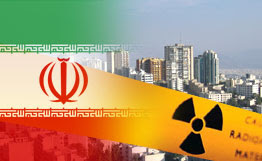Ali Asghar Soltanieh said three-day long talks focusing on highly-enriched uranium particles found at Tehran's Technical University would be held in Tehran, and would be part of an earlier agreement between Iran and the International Atomic Energy Agency (IAEA) that was signed on August 21.
The agreement stipulates that Tehran is to respond by the end of the year to all of the IAEA's outstanding questions on its nuclear program. Besides the uranium discovered at Tehran University, UN weapons experts also have questions concerning Iran's gas centrifuges for uranium enrichment, metal uranium and the country's experiments with plutonium.
Iran says its nuclear program is for civilian purposes, while Western nations suspect the country of attempting to build a nuclear bomb.
The U.S. National Intelligence Estimate (NIE) stated last week that Tehran had put a stop to weapons production in 2003, although it was continuing to enrich uranium. Iran denied ever having a weapons production program.
Despite the report, President George W. Bush said Washington and its allies would continue to push for new sanctions against the Islamic Republic. Bush called for diplomacy but did not rule out military action.
Two sets of mild UN sanctions are in place against Iran. China and Russia have both so far blocked the imposition of any new round of punitive measures against the Islamic Republic.
A source in the U.S. mission to the talks drawing up tougher sanctions against Iran said the draft of the document would be submitted to the UN Security Council before December 25.
